Teaching in the early years
by Cathy Gunning Teaching in the early years is not easily definable. Early teaching and learning is about the process, the journey and the unique
By Cathy Gunning
It could be argued that teachers who move into teaching reception for the first time, face the same challenges as the children themselves as they start in reception.
Imagine a child coming into a reception class after 48 months at home with a parent, or a 52 month old child leaving their new born baby sibling at home while they are pushed through the reception class door knowing nobody. Think about the refugee children who may have been in the country for just 11 weeks, having left their father and now living with their relatives, or a child who has been neglected for 18 months, having lived with their birth parent, then moving to a relative, and now living with a new unknown adult who is a foster carer.
All young children coming into school (and reception) for the first time need and deserve the best from us for a strong foundation and brilliant early years experience.
Strangely, an adult teaching reception for the first time can also feel just as vulnerable. EYFS teaching in Reception requires a distinct set of skills and knowledge. It is different to teaching older primary children, so as a teacher new to reception, you could find yourself feeling just as small, unknown and lost as the children you are expected to teach.
Feeling thrown in, or ‘put’ in reception teaching is often something I hear from colleagues. They feel out of their depth. Some feel that they are floundering.
How can you prepare yourself?
Becoming confident in EYFS pedagogy is a journey. It has taken me over 30 years to arrive here and I am still learning and exploring what it means to best teach young children. How do they learn best? What do they need? What is important? My best advice – and where I always start is: where are the children at? What do they need?
We can help them to feel a sense of belonging – becoming part of this class, playing, interacting and being together, making progress, supporting our needs, understanding our emotions, embracing our differences and similarities, and becoming a great learning community together.
We can start from here and build a curriculum that helps them to make sense of the world around them.
How do we hear their voice?
How do we make them welcome?
How do we ensure they belong?
How do we make them feel accepted and loved?
How well are they known?
How do we know if their needs are being met?
How do we promote and ensure their right to move, be safe, play, learn, interact and be heard?
How do we know they are learning and understanding at the appropriate stage of their development?
Is their wellbeing and joy helping them make progress?
Trust yourself
If you have a hunch, be curious. If you know the child, find out more. If you care for the child, let them be known and heard. If you respect the child, let them play, have fun, thrive and learn to their full. Find the ways they learn. Every child will learn, we just need to build a relationship, attune, listen, know and understand.
Gaining confidence
My personal mission is to support teachers to grow in confidence. Teachers must be able to feel confident when teaching a class. The children benefit from your self-efficacy to grow and learn themselves. This often can’t happen instantly. But how do we become confident when new to teaching in reception? How do we gain confidence in this New to EYFS phase? How do I get confidence when I am thrown in?
The answer to these questions at the start of your Reception teaching journey is to find help, and know who to talk to. Teachers who are new to reception are often just thrown in or put in reception or nursery from key stage one or two. They are experienced teachers but have not studied the EYFS, they may not know the EYFS statutory and non statutory materials and resources. This is a distinct and very different pedagogical approach and requires wise and experienced pedagogues to help you develop your confidence.
In order to grow in confidence teaching reception children for the first time, it is essential to recognise this and familiarise yourself with the different approaches, understanding very young children’s learning and play needs and how best to fulfil these as their teacher.
Cathy is an education coach and mentor committed to growing confidence in teachers. She has supported teachers and leaders for many years, having played, studied, taught, learned and led in education throughout her life.
by Cathy Gunning Teaching in the early years is not easily definable. Early teaching and learning is about the process, the journey and the unique
A call for universal expertise for applications to primary school headship Transition for children from the Reception class into Year 1 in England remains fraught
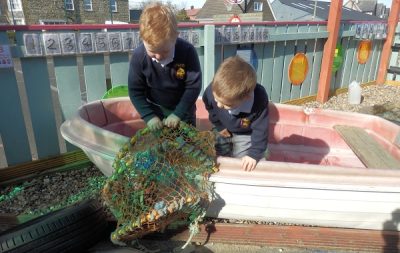
The letter below sets out our key asks for the next government.
On 10 June, Labour announced their plans for “over three thousand new nursery classes across England to open up access to childcare hours for families”,
The Lib Dems have published their manifesto, including commitments to incorporate the UN Convention on the Rights of the Child into UK law and to
Today, Friday 17 May, the Early Education and Childcare Coalition (EECC) has launched its new manifesto, with proposals to rescue and reform England’s early education
A new campaign to boost recruitment to the early years sector in England is being launched today by the government. The government press release says:
For many of us, the path we’ve taken in our careers can often be traced back to the passions and talents of our childhood and
In a speech today, Kier Starmer will set out Labour’s plans to expand opportunity via five “missions” including “Early years reform – to boost child development with an
The Department for Education (DfE) is currently consulting on proposals to amend the Early Years Foundation Stage. They propose relaxing the requirements around the minimum
by Dr Jo Albin-Clark, Edge Hill University and Dr Nathan Archer, Leeds Beckett University Inspection in the news Being involved in education in England involves
The Department for Education (DfE) have published their response to the consultation on potential changes to staff:child ratios. The consultation received responses from nearly 10,000
by Kayla Halls, Early Years Research Fellow at Middlesex University & Mona Sakr, Senior Lecturer in Early Childhood at Middlesex University’ Leaders in the early
Today, teachers from the National Education Union are striking, including many working in nursery and reception classes. In the last week, the Department for Education
by Amanda Ince and Liz Bullough, UCL Institute of Education “I want to be an inspiring leader who can inspire my colleagues in my setting
Ofsted’s latest annual review highlights the impact of recruitment and retention challenges and finds a link between inspection outcomes and the proportion of graduates in
by Clarissa Frigerio Why are there so few men teaching in the early years? I have worked in the profession for almost 9 years, and
The tenth early years minister in ten years, Kelly Tolhurst, is now in post. It’s good news that early years is part of a Minister
External Vacancies Internal Vacancies To advertise here, contact office@early-education.org.uk Organisation and multisite members may advertise vacancies for free as part of the membership package. Download Job advertisement
by Cathy Gunning Teaching in the early years is not easily definable. Early teaching and learning is about the process, the journey and the unique
A call for universal expertise for applications to primary school headship Transition for children from the Reception class into Year 1 in England remains fraught
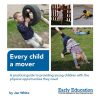



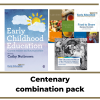
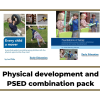
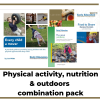
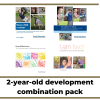
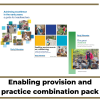
Early Education
2 Victoria Square
St Albans
AL1 3TF
T: 01727 884925
E: office@early-education.org.uk